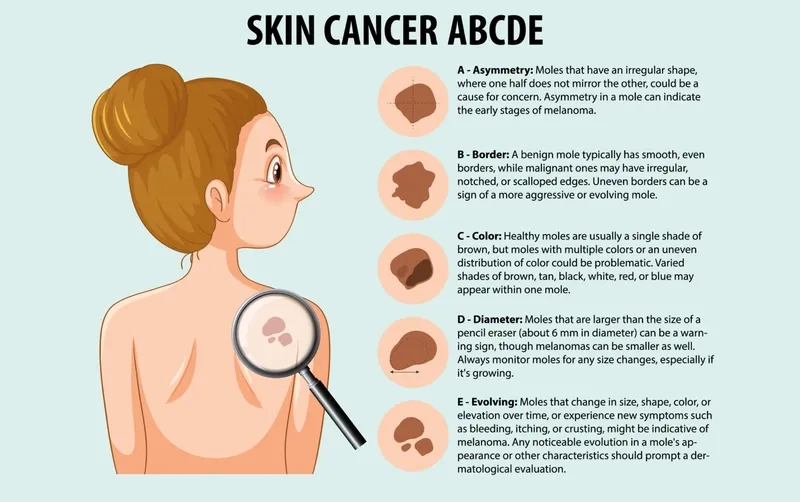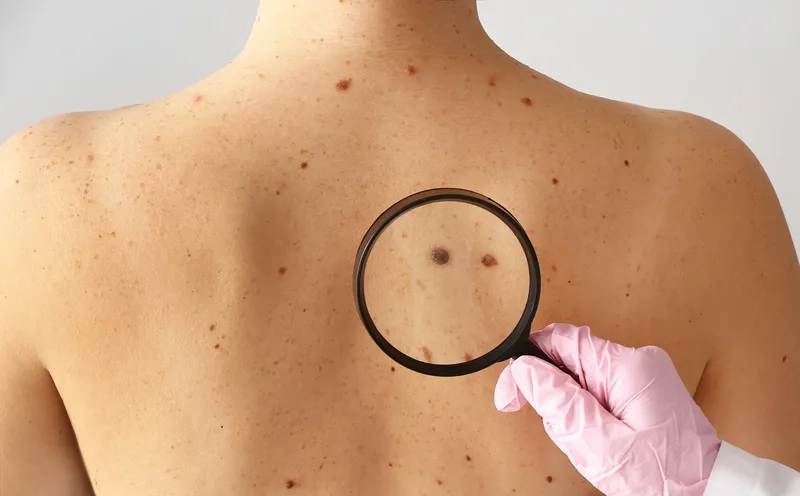That new spot on your skin might be harmless, but it could also be an early sign of skin cancer. Knowing how to spot the warning signs is your most powerful tool for early detection and successful treatment.
What are the main causes of Skin Cancer?
- The primary cause of most skin cancers is overexposure to ultraviolet (UV) radiation from the sun or artificial sources like tanning beds.
- This UV radiation damages the DNA in skin cells, leading to mutations that allow the cells to grow out of control and form tumors.
- Having a fair skin type, a history of sunburns, numerous moles, or a family history of skin cancer increases your overall risk.

Key symptoms of Skin Cancer to watch for
- Watch for new or changing moles, growths, or sores that do not heal; these are the most common signs of skin cancer.
- For melanoma symptoms, use the ABCDE guide: Asymmetry, irregular Border, uneven Color, Diameter larger than a pencil eraser, and Evolving size or shape.
- Basal cell carcinoma may appear as a pearly bump, while squamous cell carcinoma often looks like a firm red nodule or scaly patch.
How can you prevent Skin Cancer effectively?
- Seek shade during peak sun hours (10 a.m. to 4 p.m.), and wear protective clothing, including wide-brimmed hats and UV-blocking sunglasses.
- Apply a broad-spectrum sunscreen with an SPF of 30 or higher generously and reapply it every two hours, or more if swimming.
- Perform monthly self-examinations of your skin and schedule an annual professional skin check with a dermatologist for early detection.
>>> Discover more: Breast cancer – risks, symptoms and care
Learn about Skin Cancer through medical images








>>> Learn now: Prostate cancer – causes, signs and treatment
Early detection is critical for successful skin cancer treatment. If you notice any suspicious spots or changes in your skin, don't wait. Schedule an appointment with a dermatologist for a professional evaluation and peace of mind.
>>> Read to understand more: Colorectal cancer – symptoms, stages and care






